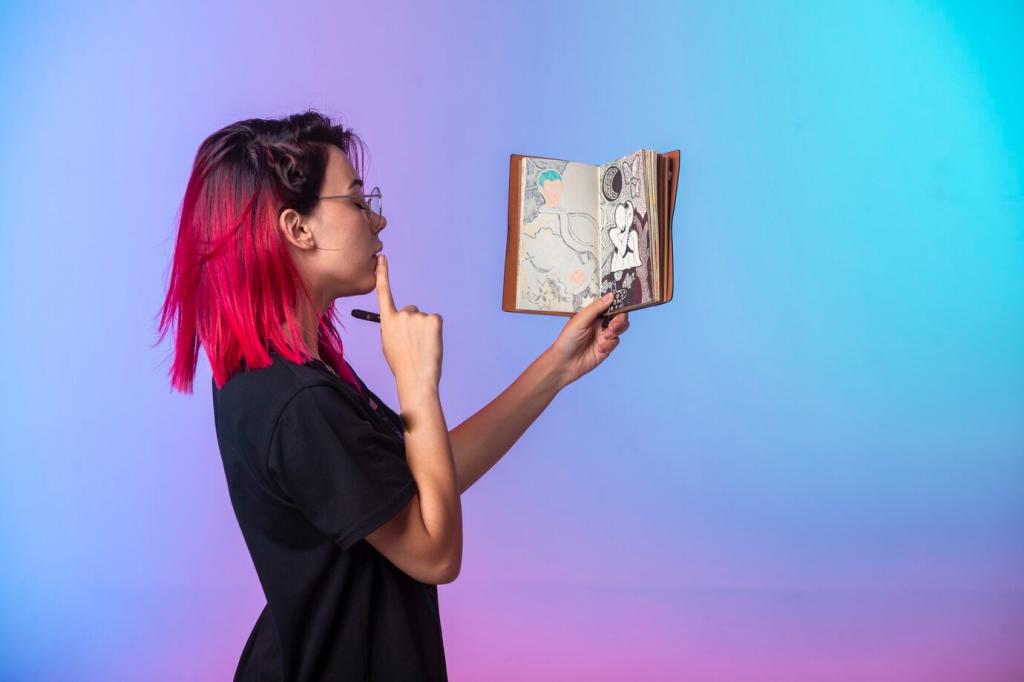Contemporary literature in English stands as a testament to the ever-evolving fabric of our global narrative. As the boundaries between cultures, genres, and identities blur, new voices emerge, challenging traditional storytelling and reflecting diverse human experiences. Modern masterpieces not only entertain but also provide critical commentary on society, technology, and identity in the twenty-first century. This web page delves into the characteristics, major themes, influential voices, and societal impact of contemporary English literature, guiding readers toward a deeper appreciation of the texts shaping our present and future.
Defining Contemporary Literature in English
Within the sphere of modern literature, narratives have undergone a transformation that mirrors the complexities and ambiguities of contemporary life. Authors experiment with non-linear storytelling, unreliable narrators, and fragmented structures to mirror the uncertainty and multiplicity of interpretation in our lives. Unlike earlier eras that often prized linear progression and clear moral resolutions, today’s literature is comfortable with ambiguity and open-endedness, inviting readers to participate actively in the creation of meaning. This evolution not only challenges traditional narrative techniques but also creates space for diverse perspectives and voices marginalized in the past. By prioritizing emotional honesty and complexity, modern masterpieces reward readers who engage with them thoughtfully and with openness to multiple interpretations.
Identity and Selfhood
In an age of shifting boundaries and social upheaval, the question of identity lies at the heart of many contemporary masterpieces. Writers explore the construction of selfhood against a backdrop of race, gender, sexuality, and cultural heritage, challenging fixed notions of identity and belonging. Through protagonists who grapple with marginalization, assimilation, or self-discovery, literature becomes a powerful space for both personal reflection and societal critique. The intersectionality of identities—how various aspects overlap and interact—is a recurring motif, inviting readers to empathize with the complexities of lived experience. These narratives illuminate the potential for transformation, resilience, and agency in the face of adversity.
Technology and the Digital Age
The digital revolution has fundamentally altered the way people interact, communicate, and perceive reality—changes mirrored in the themes of contemporary literature. Authors interrogate the promises and perils of technology, from social media’s influence on human relationships to the ethical dilemmas posed by artificial intelligence. Literature becomes a forum for examining digital alienation, surveillance, and the blurring line between virtual and physical worlds. By crafting stories that engage with technology’s impact, writers provoke vital questions about authenticity, privacy, and what it means to be truly connected in a hyper-digital age. These explorations underscore literature’s enduring role as a space for critical reflection and cultural adaptation.
Power, Conflict, and Social Justice
Contemporary literature in English is deeply engaged with questions of power, inequality, and resistance. Novels, poems, and plays confront urgent issues such as systemic racism, gender discrimination, colonial legacies, and ecological crisis. By dramatizing conflict—whether internal, interpersonal, or societal—writers shed light on both the forces that divide us and the movements that seek transformation. The lens of social justice permeates much of modern writing, empowering voices at the margins and challenging readers to confront uncomfortable truths. Through storytelling, literature fosters empathy and awareness, inspiring collective action and hope for a more just and equitable world.

Some writers have carved unique paths, introducing new forms, themes, and techniques that have redefined what literature can achieve. Their willingness to experiment—whether by blending genres, inventing new linguistic expressions, or subverting narrative conventions—has inspired successive generations. These trailblazers often address taboo subjects or difficult histories, opening doors for more inclusive and fearless storytelling. Their novels, poems, and plays not only garner critical acclaim but also spark conversations that reverberate across media and communities. The legacy of their innovation is evident in the broadened scope of contemporary literature and the increasing diversity of stories told.

A defining characteristic of modern masterpieces is the elevation of voices that were historically excluded from the literary mainstream. Writers from diverse backgrounds—whether defined by race, gender, sexuality, race, or geography—bring fresh perspectives and stories to the foreground. Their narratives challenge dominant paradigms, confront stereotypes, and enrich the tapestry of English literature with complexity and originality. By bearing witness to lived experiences often overlooked, these authors invite readers to expand their understanding of empathy, justice, and universality. The rise of literature from the margins signals not only a shift in who gets to tell stories but also in how those stories are heard and valued.

The dynamic landscape of contemporary literature is shaped by emerging writers who capture the zeitgeist of their era. Their voices, full of experimentation and urgency, push boundaries while building upon the groundwork laid by their predecessors. Social media platforms, independent publishers, and literary awards provide opportunities for new talents to reach wider audiences. These authors bring innovative storytelling methods, tackle novel themes, and reflect the concerns of younger generations growing up in a rapidly changing world. The energy and creativity they infuse ensure that contemporary literature remains a living, evolving discourse, responsive to the needs and dreams of its readers.
